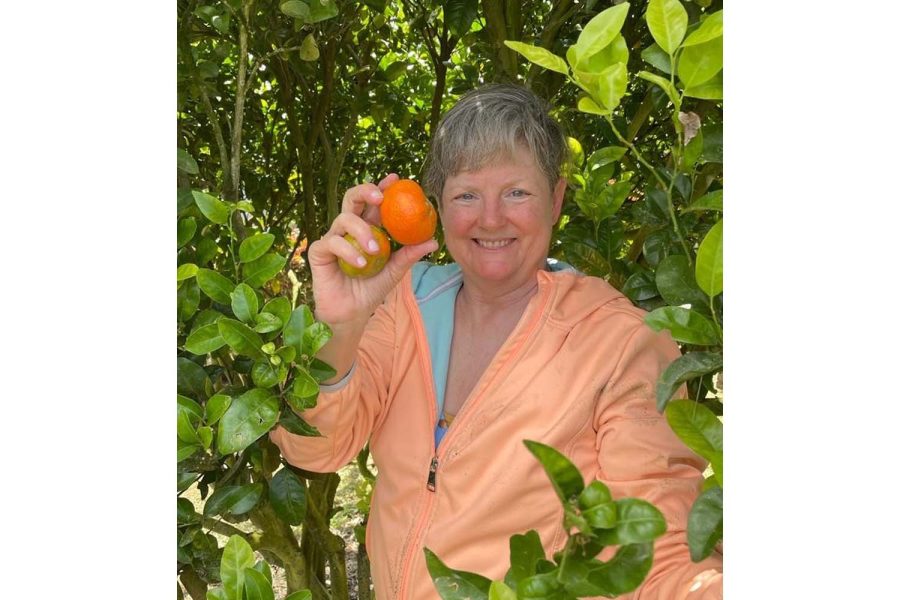UI professor develops website to teach health narratives in Spanish, English
University of Iowa professor Kristine Muñoz received a $150,000 National Endowment for the Humanities grant to develop a website that provides health narrative courses in English and Spanish.
February 7, 2022
University of Iowa professor Kristine Muñoz received a National Endowment for the Humanities grant to fund a website that offers health narratives in both English and Spanish.
Muñoz, who is a professor of Spanish and Portuguese, along with Daena Goldsmith, associate dean of faculty development and professor of rhetoric and media studies at Lewis & Clark College, received a $150,000 Humanities Initiatives grant for their project titled, “Salud, to your Health! Resources for Teaching Health Narratives in English and Spanish.”
Muñoz said the project is designed to help university professors develop courses in English and Spanish that assist undergraduates through experiences of reading, writing, and telling stories about health.
“If you have ever broken a bone, you have told the story of how it happened probably 100 times, and the story of how you broke that bone becomes a big part of understanding how it happened and why it happened, and how important that was in your life,” she said.
The funding will be used to create a website database that collects the health experiences of individuals that Muñoz and Goldsmith have encountered while studying health narratives in English and Spanish that are both positive and negative.
The three-year project begins July 1. Muñoz said the website is slated to go live in spring 2023.
The National Endowment for the Humanities has been a large contributor to humanities programs in the United States since 1965.
Muñoz said most people have a story to tell about an injury, such as a bruise or a broken bone, and by sharing these stories she finds that everyone is connected.
“All of these experiences link us together in health, wellness, life, birth, death, and grief, and the way that human beings connect with each other and make sense of it all is through telling stories about it,” Muñoz said.
Muñoz and Goldsmith have maintained a close relationship as colleagues ever since they were both graduate students at the University of Washington in the late 1980s.
When Muñoz started teaching a course in Spanish health narratives at the UI, she turned to Goldsmith for advice because she had been teaching a similar course.
“I was learning a lot from her in order to teach my class because she had been doing it for a while longer and she was directing me to readings, videos, and helped me come up with class exercises and activities,” she said.
Goldsmith said mutual collaboration with Muñoz while preparing the syllabi for their respective classes prompted them to the possibility of sharing this information on a larger scale.
“We thought, wouldn’t it be nice to be able to take the things that we’ve learned from teaching in a university and community setting and make those resources available to anybody who’s developing this interest and is looking for readings or assignments,” she said.
Muñoz and Goldsmith got the idea of applying for a National Endowment for the Humanities grant to create a website that is a go-to source for anyone studying the various aspects of health narratives.
Goldsmith said the website will serve as a portal for helping people connect, since the platform is also where people can submit their own personal health experiences.
The grant also supports an interactive journal, as a function on the website, for Spanish health narratives that will be written and edited by Spanish undergraduate students across the country.
Goldsmith said the idea for a journal section on the website came from a lack of opportunities for students to write health narratives in Spanish on other platforms.
The journal will give students a place to publish their work, Goldsmith said, as well as providing examples for people who are teaching courses about health narratives in Spanish.
“People of communities that are Spanish-speaking can find examples of these stories, and the stories might be students writing about their own experiences,” Goldsmith said.
Denise Filios, UI Spanish and Portuguese department executive officer and professor, said it is exciting to have a professor in her department recognized with this grant, and the project will assist people outside of the university community.
“These are very prestigious, and because it is a collaborative project, it means that Kristine is going to be working with a professor from another university and creating a resource that would be really useful,” Filios said. “Not only for our students here at the University of Iowa, but it will be more broadly useful.”



